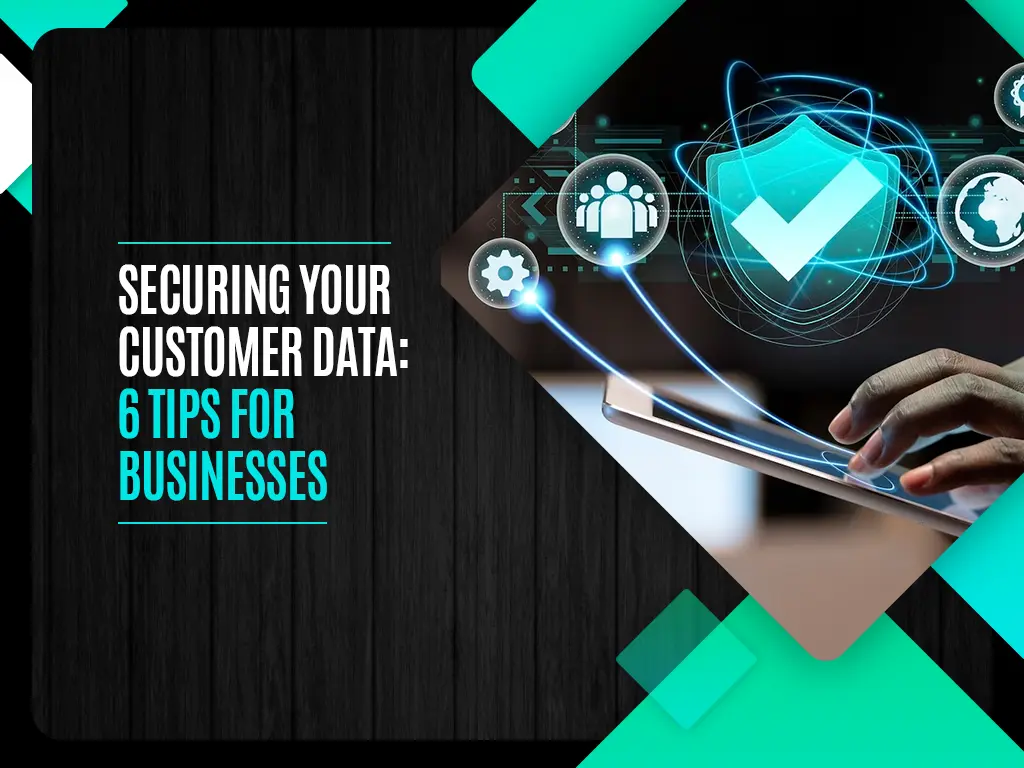Securing Your Customer Data: 6 Tips for Businesses

Securing Customer Data is crucial to every business. It helps you find out what’s working and what’s not and gives you a roadmap for planning for the future.
But customer data is also an essential responsibility for businesses to protect. That’s because many hackers want to seize sensitive data for criminal activity.
This article will share some of the easiest and most effective ways of protecting your customer data. We’ll share our expert tips and highlight essential cybersecurity tools you need to invest in to protect you, your business, and your customers.
Importance of Securing Customer Data
In 2014, Yahoo suffered a catastrophic data breach that effectively exposed the personal information of over 500 million people. Everything from a person’s email address to security questions and phone numbers was harvested by hackers.
Not only did this cause unimaginable reputational damage (that still haunts the company to this day), but Yahoo was subsequently fined over $35 million for failing to disclose the data breach in the first place.
From this example alone, we can see that companies that experience a customer data breach suffer not just with their reputation but financially.
So, how can a business handle customer data securely? Below are six tips and tricks to keep in mind.
1. Less is more
Businesses often think collecting vast amounts of customer data will benefit them in the long run. But in fact, the opposite is true. It’s better to be selective than greedy.
Data minimization is a vital privacy practice that argues that the less customer
information collected and stored, the better it is for the business in the long run. Less data means less potential for a breach or a privacy law infraction.
Securing less data is cost-effective, too, as you won’t need to spend as much on storage. Finally, remember that best practices dictate that you should delete data once it has fulfilled its purpose.
2. Be transparent with what you’re collecting to Securing Customer Data
One of the most important parts of collecting customer data is knowing what you are collecting and what you aren’t. Businesses can break down customer data into various areas, including what personal or private information has been collected and how long it will be kept.
In a data breach, you must know what has been hacked, as you’ll need to quickly communicate information to affected customers. By being focused and transparent on the data you’re collecting, you can organize and secure it more effectively.
3. Use cybersecurity tools
A VPN is one of the best tools you can use to work with customer data. This innovative tool encrypts your internet connection, preventing anyone from spying on your online activity.
Even on a public Wi-Fi network like a café, a VPN will ensure that no one can intercept the information you’re handling. You can work remotely with complete peace of mind.
Other VPN features that can help secure customer data include ad-blocking and flagging suspicious URLs and files; these limit the potential for hackers to infect your computer and compromise your systems, allowing you to securing Customer Data.
4. Ensure everyone is adequately trained
Staff training is essential in not only the collection of relevant customer data but in safeguarding it, too. When staff have appropriate skills, training, and attitudes, the likelihood of a breach is mitigated.
Simple ways to improve and maintain data collection standards across your entire team include:
- Ensure staff with access are adequately trained on cybersecurity issues and ethical use of customer data.
- Provide regular training to update staff on new and emerging threats and changes to legislation.
- Develop ways to regularly communicate your work with customers.
- Set clear policies highlighting who is responsible for what and how they should act in case of a data breach.
5. Invest in critical cybersecurity infrastructure
Businesses must invest in various technologies and equipment to secure data.
Without them, you won’t be able to keep up with emerging threats, and virtually all your data can be under threat.
So, what should you focus on? Some essential cybersecurity tools to protect customer data include:
- Antivirus and antimalware software
- Multi-factor authentication technology to protect logins
- Password managers to encrypt, store, and enter in strong passwords
- Pop-up blockers and anti-tracker software
You should also set aside a response budget to better contain the incident and react swiftly if a breach occurs.
6. Satisfy all legal requirements before Securing Customer Data
Customer data regulations change depending on the jurisdiction of your customers. For this reason, you must study all legal requirements expected of you, both nationally and internationally before securing customer data.
For example, customer data originating from the European Union will be subject to the General Data Protection Regulation, which sets out the requirements for businesses on collecting and handling data and a customer’s rights to access and request termination of said data.
In America, there are no universal customer data collection laws. That said, states like California, Virginia, and Colorado have adopted comprehensive privacy laws, with many other states planning to follow suit.
Want to know how network control security can help you achieve this? Give this blog a read.

